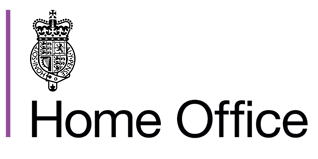The press release issued by the Home Office on 17 December 2024.
The Home Secretary has announced a package of measures to better protect the public and young people from youth radicalisation.
The public and young people will be better protected from the growing issue of youth radicalisation through new enforcement tools, extra police funding and improvements to Prevent – the UK’s programme which diverts people away from radicalisation, the Home Secretary has announced.
In recognition of the increasingly complex national security environment – including the threat from terrorism – the government is increasing funding for counter-terror police by £140 million next year, and for the UK intelligence community by £499 million, taking their funding to a record level.
With the proportion of young people in counter-terrorism casework increasing, the government will also bolster the tools available to tackle terrorist risk in these cases with the creation of new youth diversion orders.
Unlike existing counter-terrorism risk management tools, youth diversion orders will be specifically designed for young people to better manage cases which require intervention beyond Prevent. They will reduce the risk of further involvement with the criminal justice system – a key aim of the government’s Safer Streets Mission and the Plan for Change – by enabling the police to intervene earlier, working with partner agencies, before a young person’s activity risks escalating to the level at which a prosecution becomes necessary.
Youth diversion orders build upon a recommendation from the Independent Reviewer of Terrorism Legislation, Jonathan Hall KC. The measures that are imposed will be subject to judicial oversight and will allow the police to impose both risk management and rehabilitative conditions, such as Prevent interventions or restrictions to online activity. Youth diversion orders will better enable the counter-terrorism system to divert young people involved in activity of terrorism concern online and in our communities.
Home Secretary, Yvette Cooper, said:
National security is one of the government’s foundations and fundamental to our Plan for Change, which is why we are putting in record levels of funding to our security partners.
For some time now, law enforcement and intelligence agencies have been warning about the rapid increase in youth radicalisation, driven in large part by online activity. Today we are setting out new powers to tackle this and making major improvements to the Prevent programme to recognise the complex range of threats we face.
I am determined that we bring in the changes needed to move young people away from these dangerous ideologies and make the whole system more effective.
While Islamist terrorism remains the primary threat, followed by extreme right-wing terrorism, the overall threat picture is changing to include a growing cohort of young people radicalised online who do not align with any particular ideology and instead have fixations with violence. Recent Prevent statistics showed most referrals were for individuals with a vulnerability but no ideology or counter-terrorism risk.
To address this, the Home Secretary also outlined reforms to strengthen Prevent, the UK’s programme which diverts people away from radicalisation.
These will ensure that the programme keeps pace with the increasingly complex and evolving terrorist threat, stopping people from being drawn towards dangerous and extremist ideologies, carrying out acts of terrorism or supporting terrorism. The measures include:
conducting an end-to-end review of Prevent thresholds, and updating policy and guidance, including on repeat referrals, to ensure they reflect the full range of threats we see today
broadening the interventions available to people supported by the Channel early intervention programme – in addition to ideological mentoring, we will seek to reflect the increasingly diverse drivers of radicalisation, by exploring options to support at-risk individuals with cyber skills, family interventions, or practical mentoring
undertaking a strategic policy review to identify and drive improvements in how individuals referred into Prevent who are neurodivergent or suffer from mental ill-health are supported and managed
strengthening our approach to the monitoring and oversight of referrals that do not meet Prevent thresholds, by launching a pilot in January to test new approaches to cases that are transferred to other services to ensure there is proper monitoring and requirements in place
A new permanent independent Prevent commissioner will also be recruited with the specific remit of reviewing the programme’s effectiveness, identifying gaps and problems before they emerge.
The independent commissioner will oversee the implementation of the new measures outlined by the Home Secretary.
Security Minister, Dan Jarvis said:
There has been a serious emerging trend of increased youth radicalisation across the country, with the proportion of MI5 investigations into under-18s surging threefold in the last 3 years.
Our first duty will always be to keep the public safe, and the measures we’ve set out today will help ensure the Prevent programme keeps pace with the threats we face and has the tools it needs to succeed.
The government will continue to take every possible step to counter dangerous ideologies and stop people from becoming terrorists or supporting terrorism.
